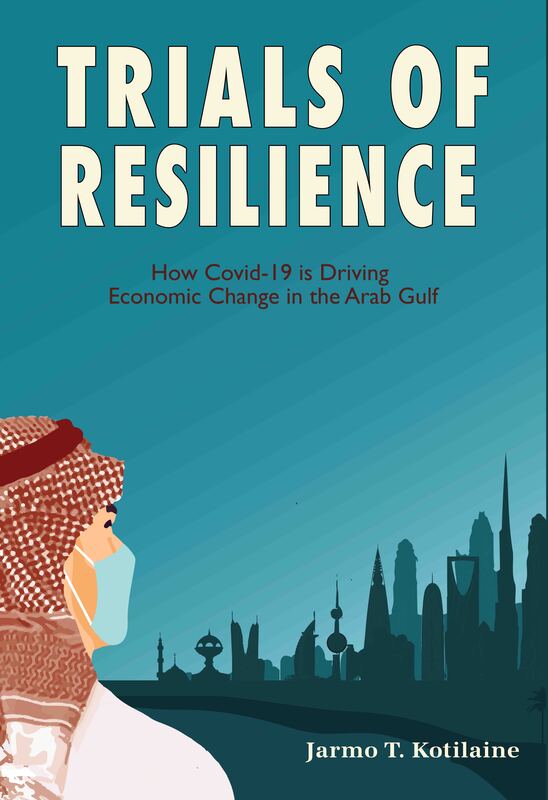|
In the Media...
|
Trials of Resilience
How Covid-19 is Driving Economic Change in the Arab Gulf Jarmo T. Kotilaine "Dr Kotilaine’s new book is perfectly timed. It’s highly refreshing to find such a rigorous and at the same time well-written and accessible account not just about the structural challenges of Gulf economies but more importantly what remedies are available to governments in a pandemic age, if they are brave enough to seize the moment and commit themselves to sustained structural change. The book is written with an eye to the impact of economic decisions on ordinary individuals, whose stories can often be lost. Ultimately it is these individuals - with all their fears and hopes - who will determine the success of Gulf reform efforts. Don’t bet against them." "Over the past three decades the GCC have heavily invested in infrastructure aimed at international integration, and implemented diversification strategies aimed at reducing their dependence on fossil fuels through investment in airlines, transport and logistics, the hospitality and tourism sector, trade and services as well as industry and manufacturing benefiting from low cost energy such as aluminum. These sectors have been the hardest hit by the Covid pandemic. Diversification strategies will have to be revised, with a new development vision and social contract. "This is a thought-provoking discussion on an important and timely topic. The COVID-19 pandemic has the potential to catalyse important changes that have been on the radar screen of Gulf policymakers for decades. It is also driving change at companies and for jobs in ways that can create the basis for stronger businesses and more employment." “Dr. Kotilaine is considered a leading expert on the Gulf economies. His intimate knowledge of, not only economic issues, but also the underlying sociopolitical landscape and culture, make him uniquely qualified to shed the light on key aspects of the post COVID scenario. Recommended reading.” "A great book to understand the critical success factors leveraged by the Gulf states to handle the health, fiscal and socio-economic impacts of COVID-19 successfully. Dr. Kotilaine has very eloquently explained how the pandemic has been a critical catalyst for change within the region, and how the actions and timelines managed by the respective governments have played a huge role in ensuring stability within uncertainty." "Kotilaine poses, and expertly analyses, the question which we should be asking, but all too often gets glossed over -namely what happens to the oil-rich countries of the Gulf when everything starts turning against them?....So now what? It’s a wonderful story, well-told." "The Gulf economies face an almost unique combination of resource riches and development needs, against a backdrop of persistently weak productivity growth worldwide and rising social expectations. Read this book to make sense of the challenges and opportunities." The Gulf region can no longer rely on the traditional growth drivers – oil, government spending, and large infrastructure projects. The anticipated rise in living standards must come by other means. But the extraordinary destruction of demand during the pandemic has underscored the persistent volatility of oil markets.
Ultimately, the crisis has also shown that the region needs stronger businesses now more than ever. The long-standing and deeply felt need to bring the private sector to the forefront, driving growth through businesses that are more dynamic and technology-based, has to be a central tenet of all government policy in the region. This is where the role of the virus will be ambiguous. By revealing the risks and costs of trying to stand by ‘business as usual’, it will serve as an important wake-up call for the need to plan for longer term prosperity. Nowhere is this more so than in the corporate sector and the labour markets, where the virus might even serve as a powerful catalyst for changes that have been anticipated for decades. |
About the Author
Jarmo T. Kotilaine has held a range of positions in the financial services sector and at government-related entities in the Gulf region, including the National Commercial Bank of Saudi Arabia and the Bahrain Economic Development Board. He currently works at a fund tasked with supporting economic diversification in Bahrain. He has written widely in the regional media on economic financial market issues. He previously worked for a number of years as an economic and financial consultant with a primary focus on financial sector development in emerging markets. Dr Kotilaine studied economics and economic history at Oxford, Cambridge, and Harvard. |




